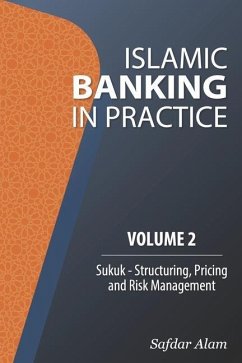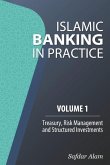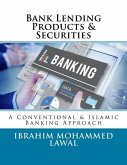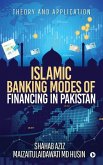This is How Islamic Banking Really Works Volume 2 of the "Islamic Banking in Practice" series covers the broad and subtle subject of Sukuk. In a sector where publications focus on theory and are rarely written by experienced practitioners, the "Islamic Banking in Practice" series concentrates firmly on market practice. Sukuks (sometimes referred to as Islamic versions of bonds) are one of the most visible products in Islamic banking, and their global reach has ensured a rapid growth in issuance. This volume will explain how Sukuks work and why they were created. The reader will be guided in how to structure a Sukuk product from first principles of Islamic commercial law. We will discover how a simple purchase of an asset can evolve into a complex structure to issue a $1bn Sukuk. Most of the different major types of Sukuk in issuance will also be described in detail, such as: * Ijara Sukuk * Mudarabah Sukuk * Wakala Sukuk * Musharakah Sukuk * Hybrid Sukuk * Perpetual Sukuk * Project Finance / Istisna Sukuk * Murabaha Sukuk * Equity-linked or convertible or exchangeable Sukuk This will be reinforced through the presentation and detailed analysis of market transactions by examination of prospectuses that are publicly available. At all stages, the focus will be on the aspects of Sukuk that relate to compliance with the rules of Islamic banking. Areas covered include: * the issuance process * asset injection * pricing and relation to underlying asset price * how asset price risk is managed and mitigated * Shariah compliance, and how the risk of non-compliance is managed Other relevant areas such as credit rating, defaults and the impact of introducing assets (including the controversial topic of a "true sale") will be covered. The key development in the markets as a consequence of AAOIFI rule changes are analysed. We will see a picture emerge of instruments, and markets, that behave in a manner far removed from the existential nature of the classic contracts that underpin the transactions. REVIEW OF VOLUME 1 "This is a book written by a practitioner in Islamic Finance, Safdar Alam, about what many would consider to be quite a dry topic, that of Islamic Banking. In fact, that is quite simply not the case. This is a book as the author describes it as "A download of what I have done and what I know." From its very outset, this first volume, which tackles money market, FX and other market contracts, gives the view of a pioneer in the industry who was challenged with a blank sheet of paper and asked to create something from the ground up, without any guidance, without a frame of reference and the minimum of support infrastructure. The story that unfolds is very readable. The book captures the imagination vividly of what it was really like in this industry less than 20 years ago, when the pioneering spirit of a few created the global industry that we now see today. This is about as real as it gets because there is a very big difference between creating something yourself and replicating something that has already been created. The author, in both a logical and engaging fashion takes us through this journey and shares his insights "warts and all" of what it took to do the needful. I would consider this book as essential reading for practitioners, students, academics and anyone who shares an interest in finding out how something new is created from the ground up. I, for one, eagerly await the sequel in Volume 2 on Sukuk." By Daud Vicary Abdullah Managing Director of DVA Consulting and former President and CEO of INCEIF The Global University of Islamic Finance
Hinweis: Dieser Artikel kann nur an eine deutsche Lieferadresse ausgeliefert werden.
Hinweis: Dieser Artikel kann nur an eine deutsche Lieferadresse ausgeliefert werden.








